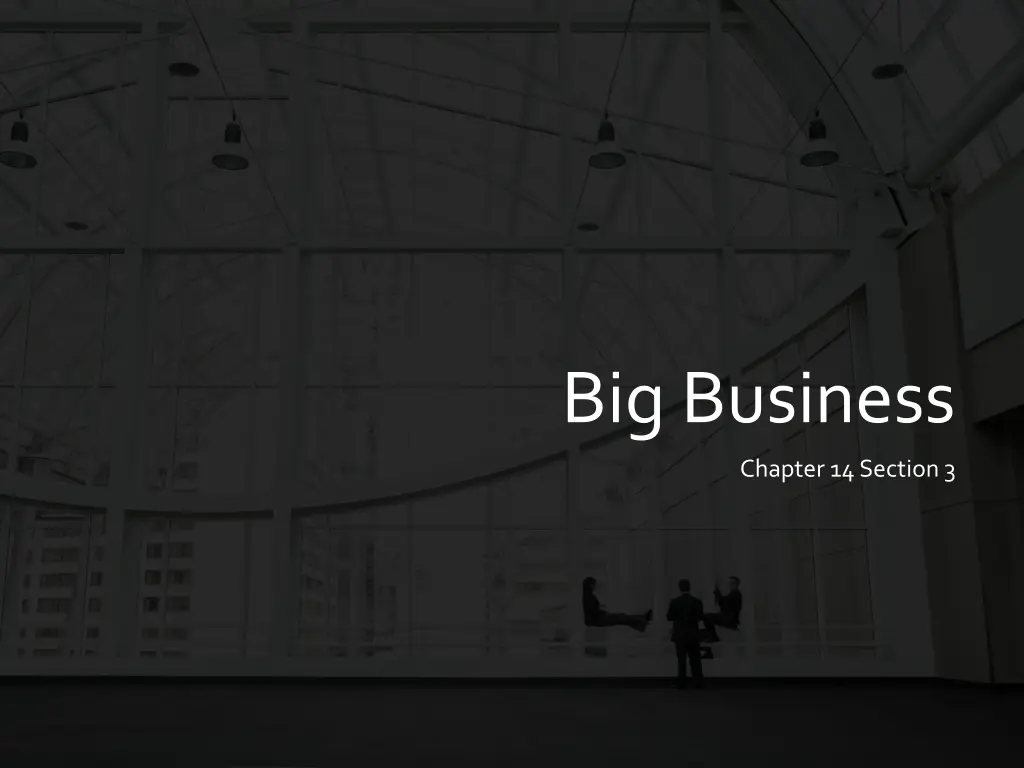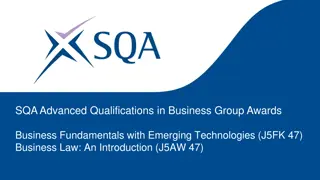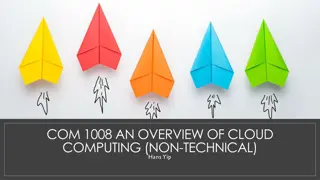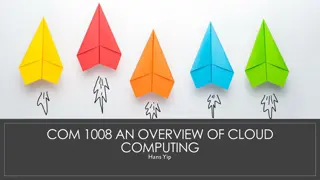
Corporations and Economies of Scale in Business
Learn about how corporations operate as single entities owned by multiple stakeholders, issuing stock to raise funds and reduce financial risk. Explore how economies of scale enable corporations to produce goods efficiently and competitively, with examples from the steel industry such as vertical integration driving cost savings and growth opportunities.
Download Presentation

Please find below an Image/Link to download the presentation.
The content on the website is provided AS IS for your information and personal use only. It may not be sold, licensed, or shared on other websites without obtaining consent from the author. If you encounter any issues during the download, it is possible that the publisher has removed the file from their server.
You are allowed to download the files provided on this website for personal or commercial use, subject to the condition that they are used lawfully. All files are the property of their respective owners.
The content on the website is provided AS IS for your information and personal use only. It may not be sold, licensed, or shared on other websites without obtaining consent from the author.
E N D
Presentation Transcript
Big Business Chapter 14 Section 3
Corporations Corporation an organization owned by many people but treated by law as though it were a single person Stockholders the people who own the corporation Issuing stock allows a corporation to raise large amounts of money while spreading out the financial risk Stock shares of the company owned by stockholders
Economies of scale corporations make goods more cheaply b/c they produce so much so quickly by using large manufacturing facilities All businesses have 2 kinds of costs Economies of Scale Fixed costs costs a company has to pay whether or not it is operating Loans, mortgages, taxes, etc. Operating costs costs that occur when running a company Paying wages, shipping charges, buying supplies, etc Big companies have big fixed costs and low operating costs
Produce more goods cheaply and efficiently Continue to operate during poor economic times High fixed costs, lower operating costs Big Negotiate rebates from the railroads company advantages Lowers operating costs even more Able to cut prices more than small business to sell more of their product Low operating costs Discounts on shipping Small business have a hard time competing Many were forced out of business
The Steel Industry Sir Henry Bessemer From England Invented a new process for making high quality steel efficiently and cheaply Andrew Carnegie opened a steel company and adapted his mills to use the Bessemer process Carnegie then began the vertical integration of the steel industry
A vertically integrated company owns all the different business on which it depends for its operation Prevents having to pay other companies for the coal, lime, iron needed for the steel industry Carnegie s company just bought the coal mines, limestone quarries and the iron ore fields Vertical Integration This saves a big company lots of money and allows it to grow even bigger!
Combining many firms engaged in the same type of business into one large corporation Big business owners like Carnegie wanted horizontal integration Horizontal Integration
When a company b/g to lose market share it would often sell out to competitors to create a larger organization By 1880 a series of buyouts had enabled Rockefeller s Standard Oil to gain control of approx. 90% of the oil refining industry in the US Horizontal integration or a monopoly??? Horizontal Integration
Monopoly when a single company achieves control of an entire market Monopoly critics feared monopolies They argued a monopoly could charge whatever it wanted for its products Most Americans were anti-monopoly Monopoly supporters argued that monopolies had to keep prices down b/c high prices would encourage new competitors to the market Monopolies
Many states made it illegal for one company to own stock in another w/o permission from the state legislature To preserve competition and to prevent horizontal integration In 1882 Standard Oil formed the first trust Trust A new way of merging businesses that did not violate the laws against companies owning other companies A legal concept that allows one person to manage another person s property Trustee - the person that manages the other person s property
Stockholders give their stocks to a group of trustees to manage The stockholders receive shares in the trust and get a portion of the trust s profits How a Trust Works Since the trustees did not own the stock and were only managing the stock they were not violating any laws This enables the trustees to control a group of companies as if they were one large merged company
Holding company It owns the stock of companies that do produce goods Does not produce anything itself A Holding Company The holding company controls all of the companies it owns Which merges them into one large enterprise






















